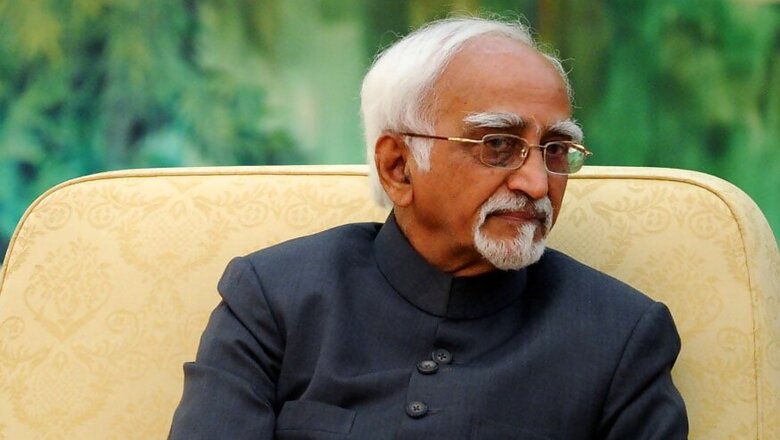
views
Since Independence, we have only focused on the percentage increase of qualified Muslim candidates in the Union Public Service Commission (UPSC). This rise has been from 2 to 5 per cent in the past two decades, which, several analysts say, is significantly low in terms of their population. The perception of being discriminated against had dominated the minds of a large section of Muslims, resulting in lesser participation. However, that very mindset is changing now.
It is important to find out if there is any inbuilt ‘fundamental fault’ in Muslim students that their percentage has remained low or it is just because they apply in fewer numbers. The point is, if the number of applicants increases and if they plan, work hard smartly, and prepare for their exams in the model time frame with the prescribed technique of achievers and experts, then their success rate will definitely increase.
If we go through the data for two years, 2003 and 2004, provided by the UPSC to the Sachar Committee, we find that the success rate of Muslims is about the same as of other candidates. Out of the total 1,1537 aspirants who appeared for the ‘mains’ written exam, the number of Muslim candidates was 283 and the percentage was 4.9 per cent. Of the total 2,342 candidates selected for interviews, 56 were Muslims and their percentage was 4.8 per cent. A total of 835 aspirants were recommended of which 20 were Muslims and the percentage was 4.8 per cent. Total recommended candidates as percentage of those who appeared for the written examination was 7.2 per cent and for Muslim candidates it was 7.1 per cent. Total recommended candidates as percentage of those selected for the interview was 35.7 per cent and for Muslims too the figure was identical.
“Questions are generally asked on the percentage of Muslims who qualified in UPSC but nobody asks how many of them had appeared for the competition and how many of them qualified,” said former Vice President of India Hamid Ansari. Citing his own example, he said, “I appeared for the UPSC exam in 1960. In that year, there were only two candidates from AMU. One was I and there was one other candidate. Out of the two, I was selected in IAS. Therefore, emphasis should be on increasing participation.”
The former Vice President, while recalling his stay at Aligarh Muslim University, said a woman member of UPSC had come to AMU to give a lecture in the political science department. After her lecture, the next morning, she said, “As a member of UPSC, I preside over a number of boards. For each board, experts are invited from different parts of the country.”
“She asked me, experts also come from your university but why not candidates? Instead of replying instantly, I took her to the IAS coaching centre,” Ansari said.
The former Vice President added, “The UPSC member while talking about the UPSC system with students said, for us, you are only a number. After earlier rounds, when you are called for an interview, then we will have your name and face. Elimination will take place only after the candidate has passed the initial rounds. As far as elimination is concerned, there are many members from various fields and from various places in the interview board. And, therefore, there is no question of elimination because of rancour. The problem with our community is that there is no inclination towards these services. When the lady officer after her lecture asked why we have experts from AMU and not candidates, one student replied, ‘We don’t sit for the competition because we know we won’t be selected.’ The lady got angry and said that 40 years ago if your vice-chancellor had thought like you, he would not be sitting here. The basic problem, particularly in Aligarh, is that there is a realisation that we won’t compete for UPSC because of discrimination.”
This thought has been changing in the past 10 to 20 years but it is still there at the roots, Ansari said. “In other places, the perception of discrimination against Muslims in UPSC has changed to a great extent. The real problem in AMU is the mindset and that can be substantiated from the fact that if students from J&K can qualify then why not from AMU? If we can find out the national ratio of candidates applied and selected from various communities, we can easily conclude that Muslims are second to none and if they appear in large numbers they can qualify more and their percentage will increase,” he said.
While agreeing with this view, DP Agarwal, former chairman of the UPSC, while recalling his interaction with AMU students in a programme six years ago, said, “The numbers are low because they are not appearing. Muslim percentage at the graduate level is low and those who can pass graduate level only can apply for UPSC. The whole idea is they must go to colleges and universities first and try to apply for central government jobs. Their application not only in UPSC but across central government is very little, and that’s the case even for state governments. So I tried to dispel the doubts that anything is held against them. In order to do this, I had invited Aligarh professors into selection boards so that they can see that there is no injustice done. When I was chairman consecutively for three years, there was a Muslim candidate who was a topper and there is no question of any kind of discrimination.
On the reasons behind the low percentage, he said, “It is a problem within and, firstly, they are not enthusiastic; secondly they are not ready; thirdly their numbers at graduation level is low; and fourthly they are not working very hard. We have to do a psychological study about why their aspirations are not rising. It is possible that today most of them are very good people and they earn sufficient money on their own or in their organisations. I have suggested that all those who are good at working with their hands, their skills can be certified by the university so that they can earn more with some diploma certificates and so on.”
On what should be the success percentage of Muslim candidates, Abusaleh Shariff, executive director, US-India Policy Institute, Washington DC, who had played a key role in preparing the Sachar Committee report, said, “Last year, the government gave 10 per cent EWS quota. Out of that, 5 per cent should be reserved for Muslims because 60 per cent of Muslims are not covered under OBC quota, whereas 55 per cent of non-Muslims are covered under it. That is why 5 per cent EWS quota should be legally assigned for Muslims. The government and communities together should make all efforts to increase the share of Muslims among successful candidates to about 12 to 15 per cent. 15 per cent is ideal, but there should be at least 10 per cent. It is only about 5 per cent now. Efforts should be made to bring equity not in quota distribution but in UPSC services. Whatever selection is done at the moment, they have to double it.”
Dr Syed Zafar Mahmood, former Indian civil servant, and president of the Zakat Foundation of India, who runs a coaching centre for UPSC from where 27 candidates have qualified out of 42 candidates this year, said, “Till 2016 (2015 exam), the Muslim percentage was 2.5 or less, though still there was a progressive hike in the absolute number of successful candidates. Year after year the total number of candidates selected by the UPSC was going up substantially. So, in order to even maintain the existing percentage, the number had to go up. Between 2012 and 2020, I addressed 40 well-organised civil services orientation programmes across India. The community of elders was mobilised in each case. The gestation period for such efforts to manifest into success, however, runs into several years. Thus, during 2017-2020 (exam of 2016-2019) the Muslim percentage rose to four and then five plus. There is a giant leap forward: from diffidence to confidence. ‘Strengthening from within’ is the unstated motto permeating across the echelons. Among the elders too there is a robust realisation of proactively discharging greater responsibility. Society is looking to the future ahead: in terms of decades and centuries.”











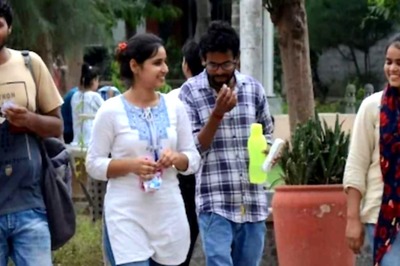


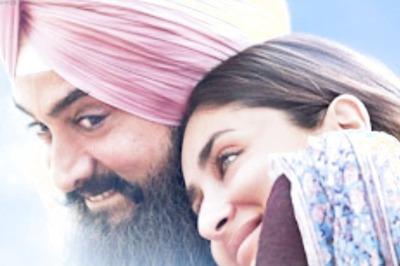


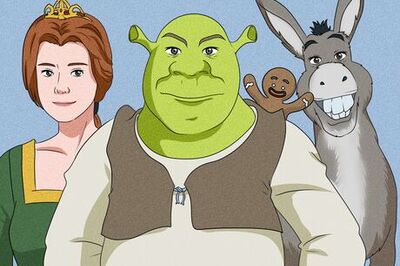
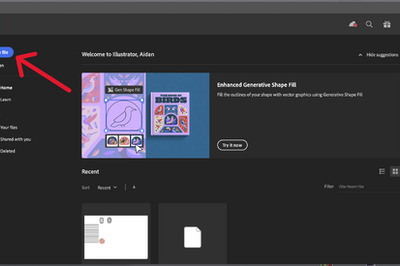
Comments
0 comment